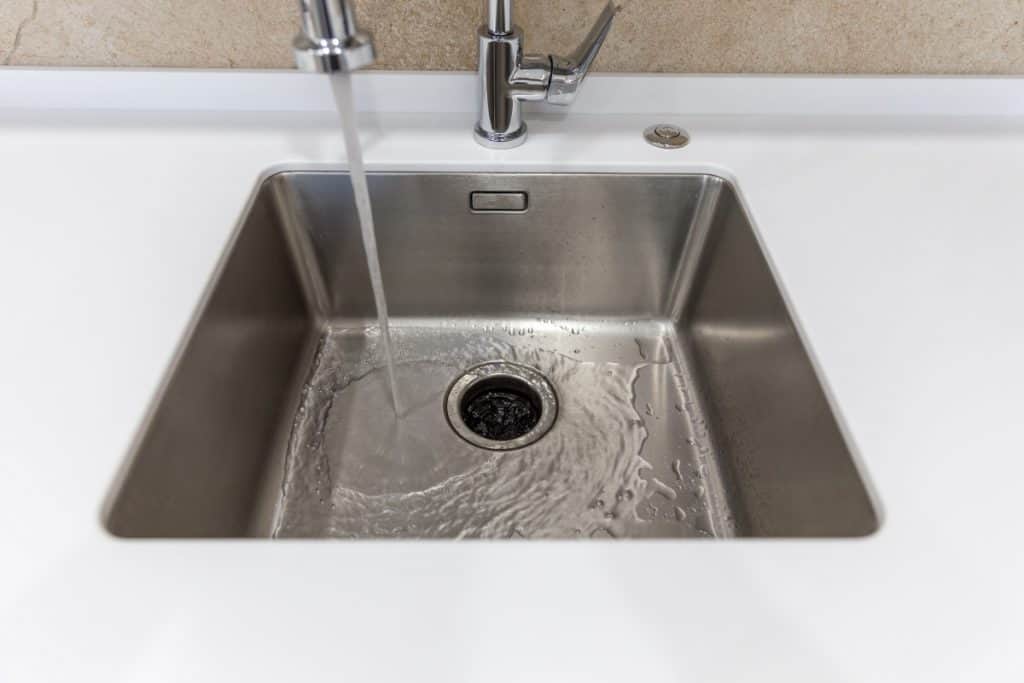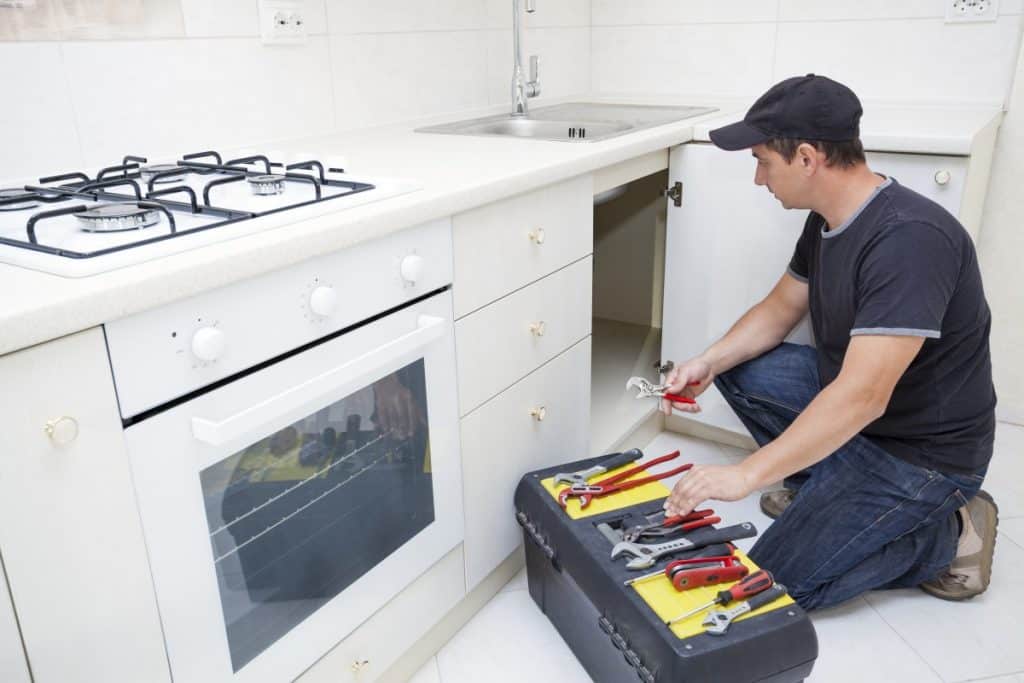Many people have a garbage disposal in their kitchen sink and find them very useful. However, when connecting a new garbage disposal to the existing circuit, it is important to consider what can be connected to it. In other words, does a garbage disposal need a dedicated circuit, or can it be connected with other appliances?
Garbage disposals need to be connected to a dedicated circuit of 15 or 20-amps with its own breaker. If the garbage disposal uses another circuit with other appliances, it could cause the breaker to trip. Sometimes, garbage disposals and dishwashers can be connected to the same circuit.
Now that you know that garbage disposals need to be on their own circuit, it is important to know why garbage disposals and dishwashers can only sometimes be connected to the same circuit. Keep reading to find out.
Do Garbage Disposals Need a Dedicated Circuit?
Have you ever wondered why the garbage disposal switch is separate from the outlets and light switches in the kitchen? This is because they need to be on their own circuit apart from the other kitchen appliances.
Garbage disposals need to be connected to a dedicated circuit that is 15 to 20 amps or more. It is unlikely that your garbage disposal will need a circuit with more than 20 amps of power.
Garbage disposals should not be connected to a circuit with other appliances. If multiple appliances are on the same circuit, it could lead to a power shortage. In the event of a power shortage, you will have to reset the circuit by flipping the breaker. Frequent power shortages could damage the appliances, requiring them to be repaired or replaced.
Garbage disposals don’t run for an extended period of time, instead, they run in short bursts. However, that short amount of use and initial surge of power is high enough to trip the breaker and cut off power to other appliances.
One of the reasons why garbage disposals need to be on their own circuit is because garbage disposals vibrate when the blades move, and that vibration can cause plugs in outlets to separate from the outlet. If your fridge is connected to the same outlet as your garbage disposal and the plug comes loose, then your food will likely become spoiled.
Can a Garbage Disposal and Dishwasher Be On the Same Circuit?

Occasionally, garbage disposals and dishwashers can be connected to the same circuit. Keep in mind, you should not connect your dishwasher to a circuit that leads to one of the power outlets near the countertop. It is against code in most states, and you will end up damaging the electrical circuit. Consider this information when choosing what circuits to connect your appliances to.
However, if the Owner’s Manual of the garbage disposal or dishwasher indicates that it needs its own circuit, then they can’t be connected to the same circuit.
If it doesn’t say that a separate circuit is needed for that appliance, then you can connect the dishwasher and garbage disposal to the same circuit without issue.
That being said, sometimes it is best to keep the dishwasher and the garbage disposal on separate circuits. So long as the appliances are on different circuits, neither can be affected by either while it is running. If the dishwasher and garbage disposal are on the same circuit and are run at the same time, then one appliance’s performance (or both) will be affected for a short period of time.
If your garbage disposal or dishwasher is connected to a circuit that only has a 15-amp capacity, do not connect another appliance to it. If you do, the circuit will frequently trip because it is overwhelmed by power.
In the event your dishwasher and garbage disposal are connected to the same 15-amp circuit, never run them both at the same time. The performance of both appliances will be affected and a power shortage will likely occur. So long as one appliance is run at a time, you should not experience problems by connecting them to the same circuit.
You should never connect your garbage disposal to the same circuit as any appliance other than the dishwasher. Garbage disposals cause a lot of vibration that could loosen plugs. Since it is essential to keep most other kitchen appliances plugged in all the time, they should never be on the same circuit.
Garbage Disposals in Older Homes
If you have a garbage disposal in an older home, make sure that it is connected to its own circuit, especially if the electrical system hasn’t been updated in the last 10 years. If you don’t give your garbage disposal a dedicated circuit, it may overwhelm your electrical system and trip the breaker.
Older homes that have outdated electrical systems aren’t as electrically efficient as newer homes. Installing a garbage disposal into a new home may prove difficult since it may require extensive updates. However, it is not impossible to install a garbage disposal correctly in an older home.
If you live in an older home and want to install a garbage disposal, consult an electrician first. Another option is to have a professional installer come to do the work, rather than doing it yourself.

In general, garbage disposals need a dedicated circuit to properly function; however, certain circumstances allow you to connect to your dishwasher to the same circuit as the garbage disposal.
Remember, if both the dishwasher and garbage disposal operate from the same circuit, try not to run them at the same time. Running one appliance at a time ensures it receives ample power. Considering most people run the garbage disposal before starting the dishwasher, this should not be an issue.
Never assume that your dishwasher and garbage disposal can run on the same 15 to 20 amp circuit. Check the owner’s manual for both appliances before installation. Additionally, never connect your garbage disposal to the same circuit as any appliance other than the dishwasher.
Related Topics:
If you like the article above, here are some other similar articles you should check out!
Do Garbage Disposals have a Reset Button?
